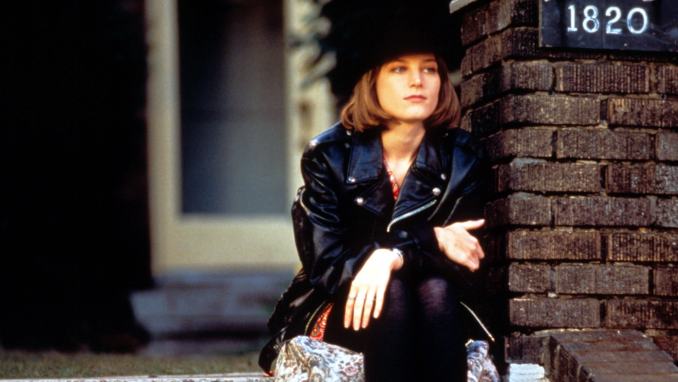Singles at 30: Examining Cameron Crowe’s Anxious Gen X Misfire

When Cameron Crowe’s Singles was released in September 1992, Richard Linklater’s first major film had just left theaters and Reality Bites was still a year and a half off. The “chatty young people” indie boom of the 1990s hadn’t yet resulted in easy-to-confuse titles to vaguely Woody Allen-ish comedies like Sleep with Me, Naked in New York, Kicking and Screaming or Walking and Talking. On television, Living Single was a year away, Friends was two and Seinfeld wasn’t yet a Thursday-night juggernaut. So before you even get to the movie’s on-trend Seattle setting and small acting parts for members of Pearl Jam, Singles had some novelty just as a movie about (white) Generation Xers doing Gen-X things: Working crummy jobs, listening to grunge, going to bed together and obsessing over social minutiae.
Despite that important baby-step in the development of Generation X on screen, it would be a stretch to say that Singles has aged particularly well at 30—older now, of course, than most of its characters were when it was released. Crowe’s previous movie, Say Anything, is justifiably more beloved (it’s nearly perfect, in fact), while his next, Jerry Maguire, remains his signature smash. Reality Bites wasn’t any bigger of a hit, but it’s a stronger character-type reference point by far. Another later Gen-X chatfest, Clerks, is still inspiring sequels. In terms of that deluge of “people dating in cities” sitcoms that followed it, Singles is probably closer to Caroline in the City than Friends, at least in terms of fanbase size.
This is a little surprising, considering how much luck Crowe has had filling in the timeline of adolescent-to-adult development. Almost Famous and Say Anything cover the teenage-to-college years pretty well, and Jerry Maguire is a grown-up rom-com about a thirtysomething professional. Why didn’t Crowe make much of a mark on the years in between?
Some if it is the accident of casting. No one in Singles is especially bad, most of the cast is likable and a few of them might inspire some IMDb surfing as you try to figure out why they weren’t in more movies (it turns out Sheila Kelley has been in plenty, I just didn’t recognize her). But the ensemble chemistry doesn’t fizz; there isn’t a Winona Ryder generational figurehead, a Janeane Garofalo-level breakout or anyone as memorably loathsome (or, fine, as handsome and magnetic) as Ethan Hawke’s Troy, all from Reality Bites. Campbell Scott and Kyra Sedgwick, by contrast, are well-matched as a couple of neurotic professionals who have grown weary of the big search for love, and that might be the problem. They’re so compatible, even-tempered and reasonable that they don’t really register as twentysomething fuckups, even in a movie-ish way. They feel a bit like tourists in any milieu they share with Matt Dillon’s Cliff, a doofus grunge musician and sort of proto-Joey Tribbiani, whom Crowe affords his trademark grace: He’s never as good a boyfriend as Janet (Bridget Fonda) wants, while never being quite as insensitive a lunkhead as he might appear.
Fonda’s Janet is the closest the movie has to a plucky heroine, and she operates at a slight remove. Her He’s Just Not That Into You mooning over Cliff leads her to consider a boob job, but mostly she’s on a journey to a kind of singleton zen, so she can impart some wisdom to her ex-boyfriend and current pal Steve (Scott). She’s the de facto Crowe heroine because she seems most adept at talking things out. And if there’s something the movie does well—so well, in fact, in its closing moment that it makes large swaths of the movie feel like a missed opportunity—it’s capitalize on a generation addicted to what one Say Anything character described as “that nervous talking thing.”
As Crowe’s camera travels around the Seattle skyline, a cacophony of anonymous, overlapping twentysomething voices builds, contradicting Dillion and Fonda’s final exchange, about their circuitous path through the dating scene, and back to each other: “Does everybody go through this?” “No, I think it’s just us.” Much of the rest of Singles hovers between these all-out neuroses and a gentler sense of melancholy.
-

-

-

-

-

-

-

-

-

-

-

-

-

-

-

-

-

-

-

-

-

-

-

-

-

-

-

-

-

-

-

-

-

-

-

-

-

-

-

-








































